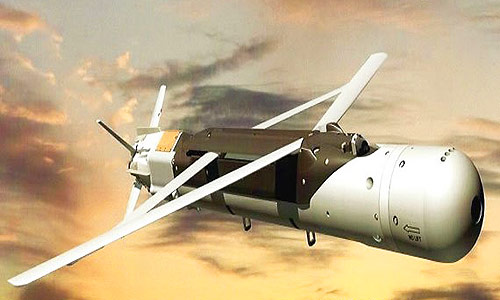
India has moved closer to self-dependence in precision-guided ‘smart glide bombs’ as it conducted covert trials of these bombs successfully at Pokhran firing range in Jaisalmer on Friday. Christened as ‘Garuthmaa’ and ‘Garudaa’, the ‘glide bombs’ are being indigenously developed by the Defence Research and Development Organisation (DRDO). Of these two drop trials, the test of Garudaa, the non-winged glide-bomb, was carried out to evaluate its precision for a range of 30 kilometres on Thursday. In another set of drop trials on Friday, both Garudaa and ‘Garuthmaa’ were successfully tested from a Su-30 MKI aircraft. Garuthmaa, the 1,000-kg winged smart glide bomb, was tested for its maximum 100-km range. Top DRDO officials termed the tests as a ‘major success’. It may be mentioned that the trials for a maximum range of 100 kilometres for this ‘1,000-kg’ smart bomb have already been successfully held over the Bay of Bengal, off the Odisha Coast in December 2014 and then in 2015. One covert trial scheduled for Friday was, however, kept pending due to erratic weather. Sources in DRDO said that guided by on-board navigation systems, Garuthmaa was tested for its first phase of trials in Thar Desert for assessing its accuracy in hitting a target after gliding for 100 kilometres. ”The bomb was dropped from a Su-30 MKI aircraft for which we got full support from the Pune airbase. User, in this case the IAF, has been involved in development and related trials of this ‘smart bomb’ from the beginning”, said an official, adding that non-winged Garudaa was tested for 30-km range and would be tested for bigger ranges (up to 100 km) in future. DRDO officials shared that the flight path, precision or accuracy, clearance after dropping and other parameters of ‘Garuthmaa’ were monitored by the radars and other electro-optic systems stationed at the firing range. ’Garudaa’, the non-winged version of this guided bomb with a range of 30 kilometres was tested initially three years back. DRDO officials shared that contrary to the conventional ‘dumb bombs’ which take a free flight after being dropped, guided bombs like ‘Guruthmaa’ have winglets and on-board navigation and guidance systems enabling these to hit the target with precision after being dropped from varying heights. Both ‘Garuthmaa’ and ‘Garudaa’ are a brainchild of various laboratories of DRDO including Research Centre Imarat in Hyderabad, Defence Avionics Research Establishment (DARE) in Bengaluru, Terminal Ballistics Research Laboratory (TBRL) in Chandigarh, Armaments Research and Development Establishment (ARDE) in Pune.



Also test canisters lunch glide bombs and 3000 kg ,5000 kg and 10000 kg bombs in the contest of Chinese agression.